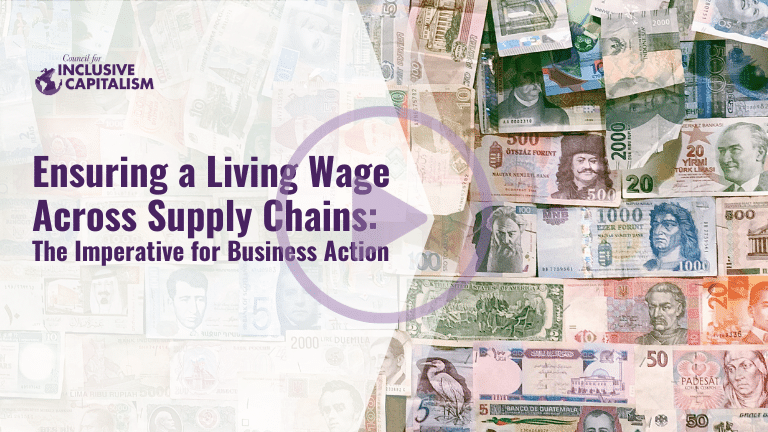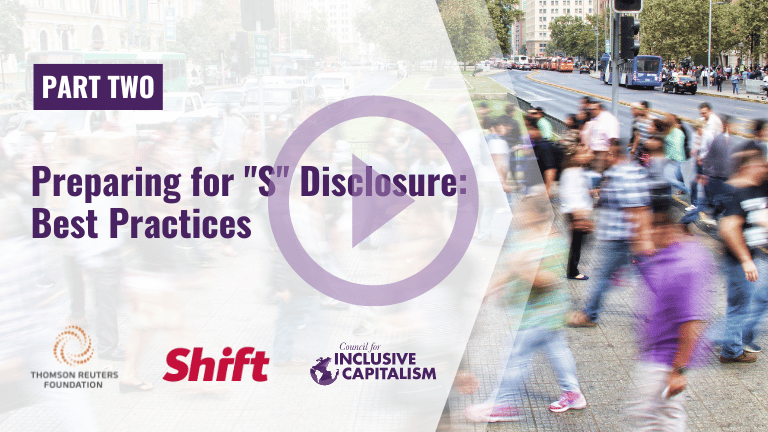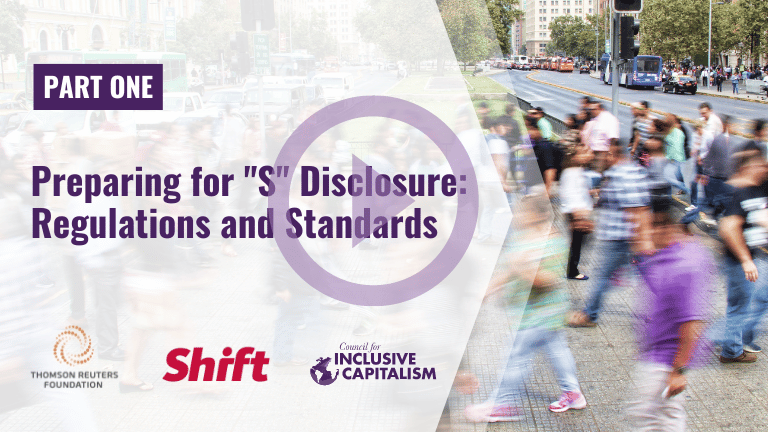Ensuring a Living Wage Across Supply Chains: The Imperative for Business Action

Over 630 million workers around the world do not earn enough to afford a decent standard of living. They are not paid enough for the work they do to afford the basics, including sufficient food, housing, education, health care, and other essentials. A living wage enables workers and families to live in dignity, it also empowers them as consumers and contributors to the economy.
On October 19, the Council for Inclusive Capitalism partnered with IDH, the United Nations Global Compact (UNGC), and Unilever to host the “Ensuring a Living Wage Across Supply Chains: The Imperative for Business Action” webinar.
Griet Cattaert, Head of Labor Rights at UNGC, set the stage by discussing the difference between a living wage and how it differs from a minimum wage, highlighting how minimum wages do not always allow for a decent standard of living.
Honore Johnson, Senior Innovation Manager for Better Jobs at IDH, illustrated why the private sector should engage on the topic of living wages. Benefits of a living wage include an increase in productivity, more resilient supply chains, reduced turnover, and increased recognition and reputation. It can make a company a more attractive employer and a more attractive supply chain partner. Johnson pointed out that a living wage is instrumental in working on the SDGs, especially child labor, gender equality, and better work.
However, implementing a living wage across supply chains can take time. Anouk Heilen, Global Sustainability Director at Unilever, noted that it took Unilever years to achieve living wage compliant certification, and that it is crucial to get executive leaders to buy into this process. Heilen shared that if the living wage agenda were to be implemented globally, it would increase global GDP by $4.5 trillion a year.
Advancing a living wage is a key part of decent work, a priority area for many Council members. Council Allies including IDH, Living Wage for US, the Business & Human Rights Resource Centre, and Business for Inclusive Growth are helping businesses implement living wage in their organizations and across their pipelines, and creating resources and toolkits for education, advocacy, and implementation. Council Stewards including Vale have instituted a living wage across all employees and SSE have achieved real Living Wage and Fair Tax Mark accreditation.
To explore more commitments to decent work and economic growth, click here.
To hear more about the imperative for businesses to take concrete action toward ensuring a living age across their supply chains, please view the recording and the presentations below. To learn more about how you can get involved, please contact us.



